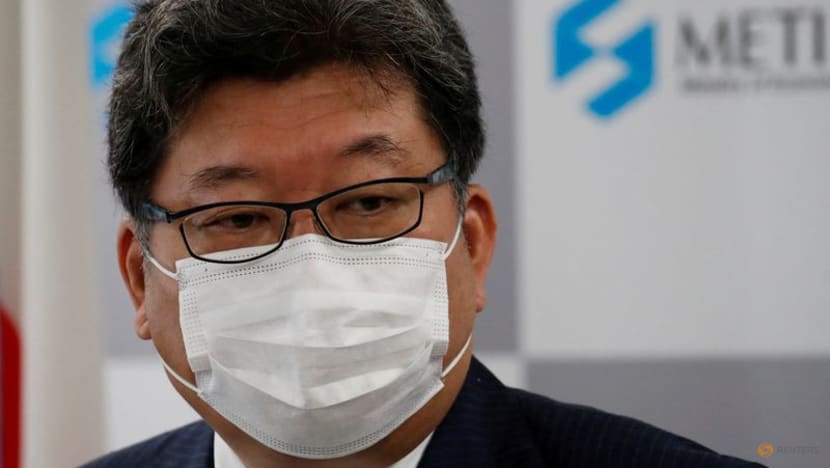Japan to ask households, companies to save energy this summer

FILE PHOTO: Japanese industry minister Koichi Hagiuda. He was formerly Economy, Trade and Industry Minister and seen here at a news conference in Tokyo, Japan, October 5, 2021. REUTERS/Kim Kyung-Hoon
TOKYO : The Japanese government said on Tuesday it will ask households and companies to save as much electricity as possible during the peak summer demand season to alleviate a possible power crunch.
The measure was set at a meeting of cabinet ministers on Tuesday as three regions, including Tokyo, are expected to see their excess generation capacity - the level below which supply shortages and blackouts are possible - falling to near 3 per cent in July.
"We will take every possible measure to ensure supply, including the restart of idle power plants, additional procurement of fuels, and the maximum use of renewables and nuclear power," Japanese industry minister Koichi Hagiuda told a news conference.
The government's national energy-conservation request comes for the first time since 2015 and will be effective between July 1 and Sept. 30. During this time, the public will be asked to turn off unnecessary lights and to set air conditioners at 28 degrees Celsius.
Japan's power supply has been tight amid a slow restart of its nuclear power plants and a series of closures of aging thermal power plants in part to meet its goal to cut carbon dioxide (CO2) emissions.
The resource-poor country also faces the risk of a shortage of fossil fuels due to possible supply disruption of fuels such as liquefied natural gas (LNG) from Russia amid the conflict between Russia and Ukraine and widening sanctions on Moscow by the West.
Electricity supply in Japan is expected to become even tighter in the winter, with estimated excess capacity declining below 3 per cent in seven out of 10 total regions in January and February, including the Tokyo area, where it is expected to slide below 0 per cent.









